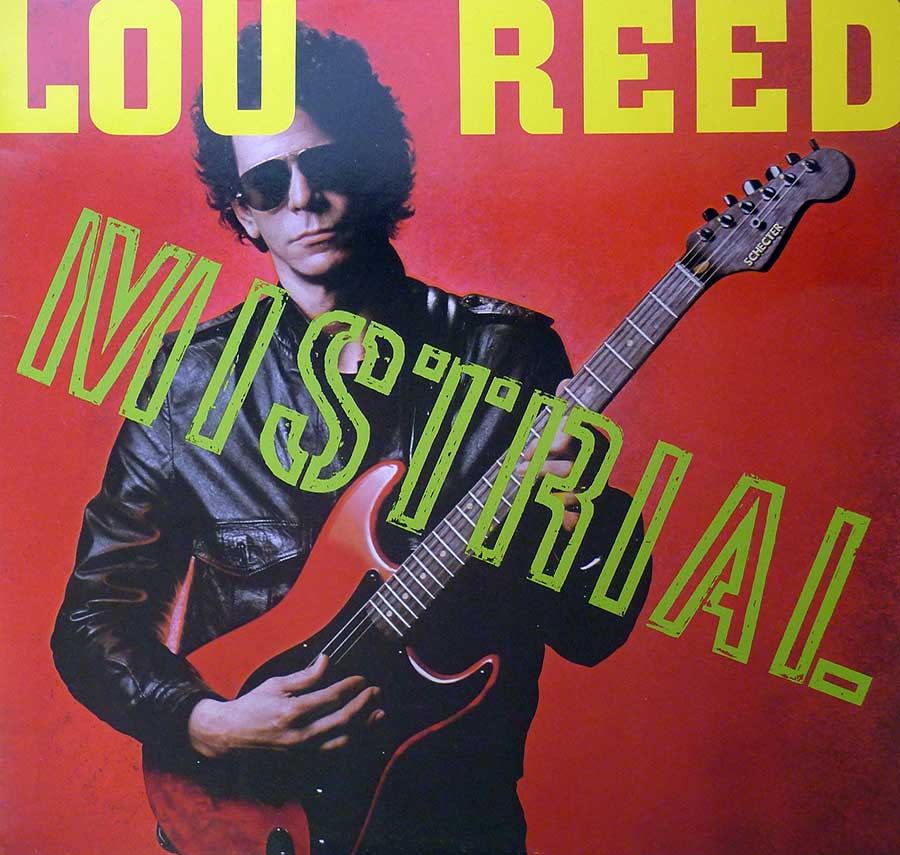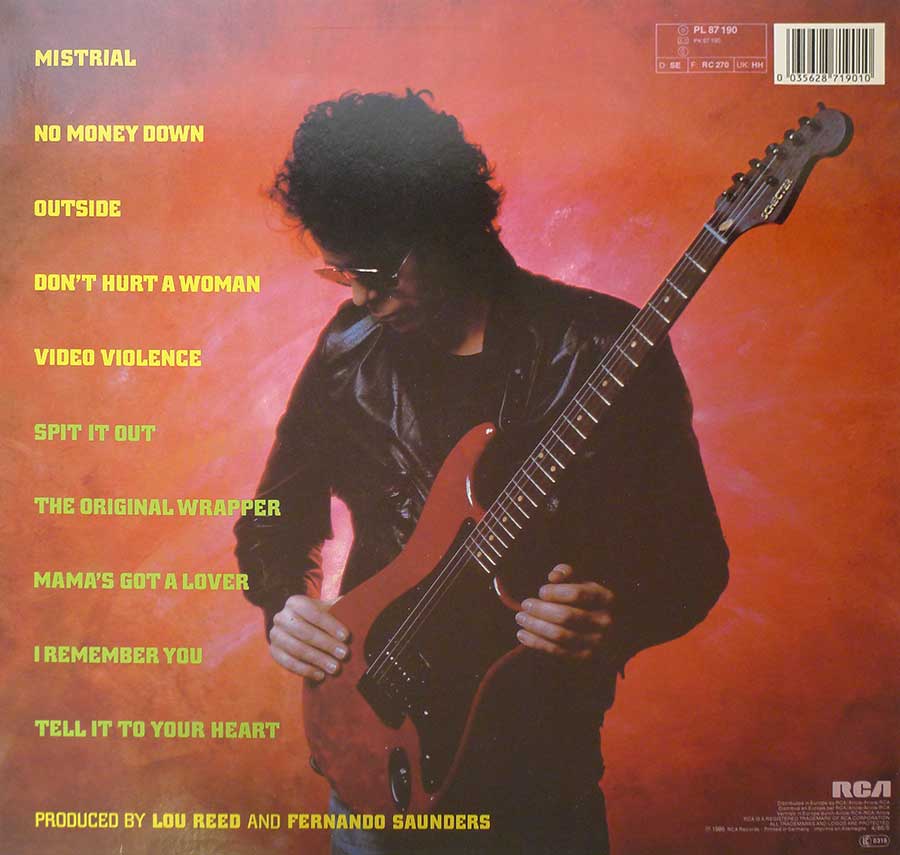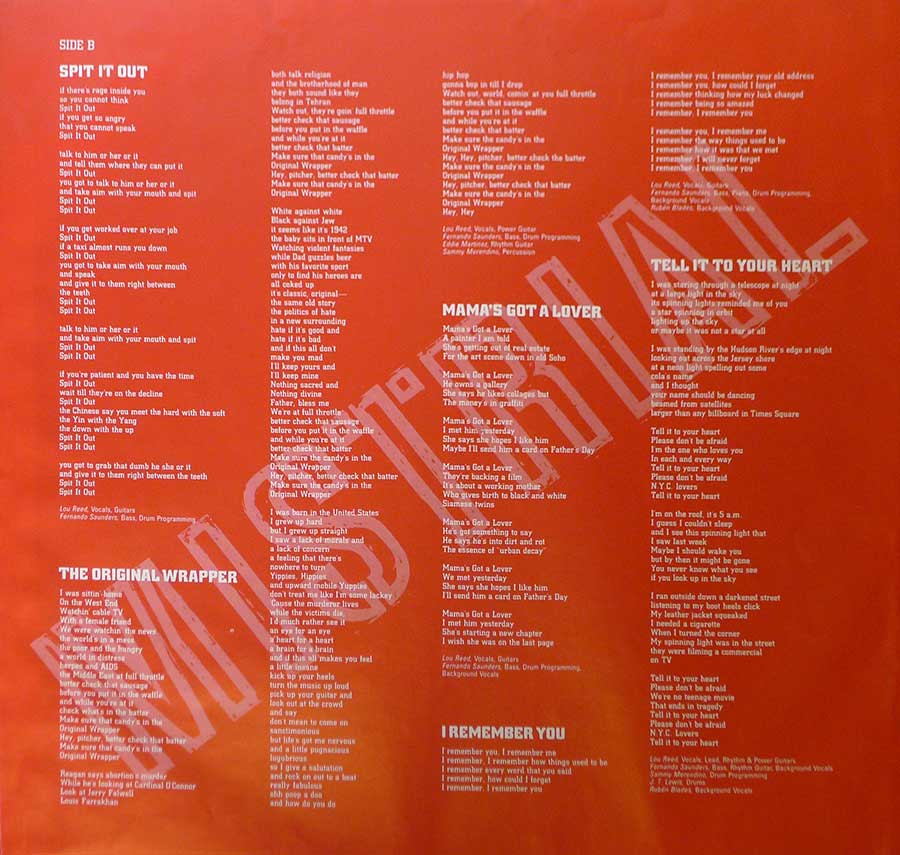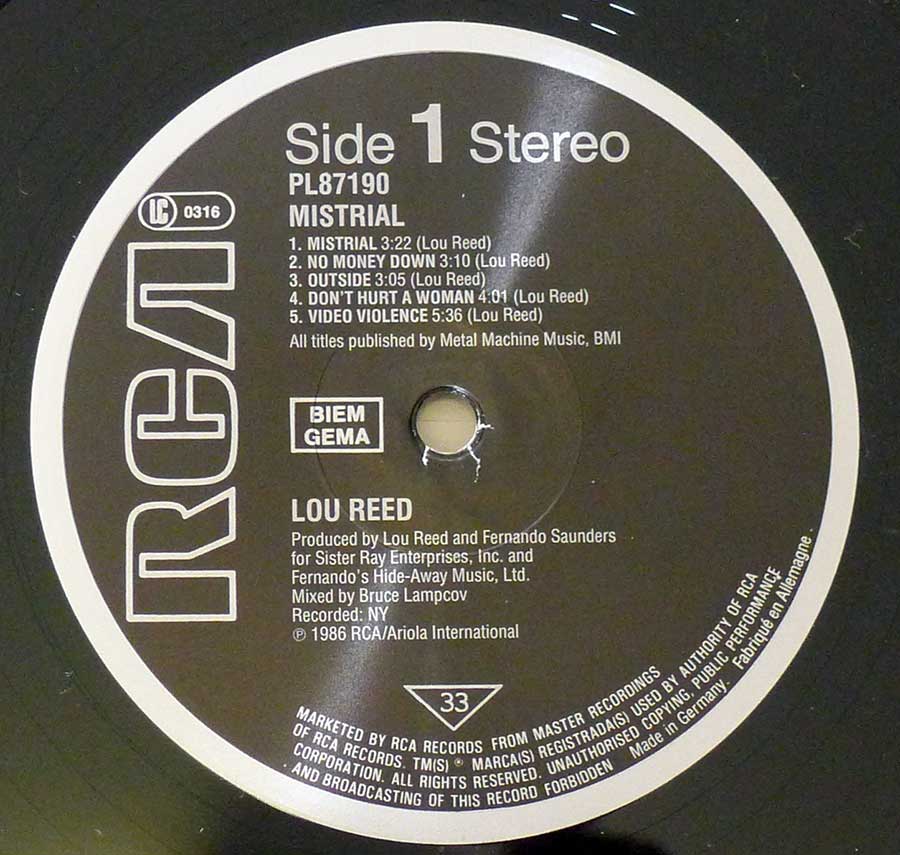"Mistrial" Album Description:
In the vibrant tapestry of the 1980s music scene, Lou Reed's "Mistrial" stands out as a testament to the artist's enduring creativity and his ability to adapt to the evolving sound of the era. Released in 1986, this fourteenth solo album marked a distinctive chapter in Reed's illustrious career.
The 1980s Music Landscape
The 1980s were a transformative period for the music industry, witnessing the rise of new wave, synth-pop, and alternative rock. Amidst the technological advancements and changing cultural landscape, artists experimented with electronic instruments and production techniques, pushing the boundaries of traditional rock and roll.
Lou Reed's Musical Evolution
Known for his role in the influential Velvet Underground and his eclectic solo career, Lou Reed was no stranger to musical experimentation. "Mistrial" showcased Reed's willingness to embrace the sounds of the time while maintaining his signature style. The album captured the essence of the '80s without sacrificing Reed's distinctive voice and songwriting prowess.
Notable Contributors
"Mistrial" featured a lineup of talented musicians who played a crucial role in shaping the album's sonic landscape:
- Eddie Martinez: His contribution on rhythm guitar added depth and texture to the album's musical arrangements.
- Fernando Saunders: A versatile musician, Saunders handled bass, drum programming, and provided background vocals. His presence was particularly felt on tracks like "Tell It To Your Heart" and "Don't Hurt A Woman."
- Rick Bell: The soulful sounds of the tenor saxophone, played by Bell, added a jazzy dimension to the track "No Money Down."
- J.T. Lewis: As the drummer and percussionist, Lewis contributed to the rhythmic foundation of the album, creating a dynamic and engaging listening experience.
- Sammy Merendino: His work on percussion and drum programming further enhanced the album's contemporary sound.
Track Highlights
1. "I Remember You": A poignant ballad featuring Reed's soulful vocals and Saunders' skillful piano work, this track showcased the artist's ability to convey emotion through his music.
2. "Outside": The fusion of bass synthesizer and percussion on this track highlighted Reed's willingness to experiment with electronic elements, giving the song a modern edge.
3. "No Money Down": Rick Bell's tenor saxophone took center stage in this jazzy, upbeat track, adding a playful element to the album.













